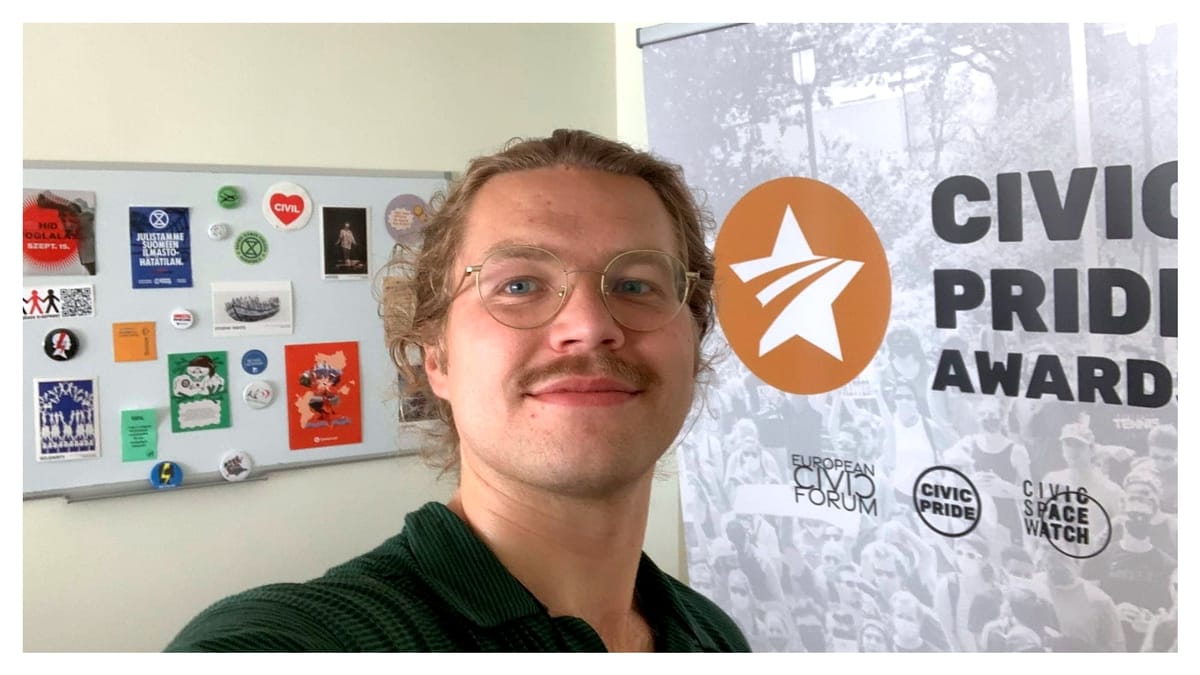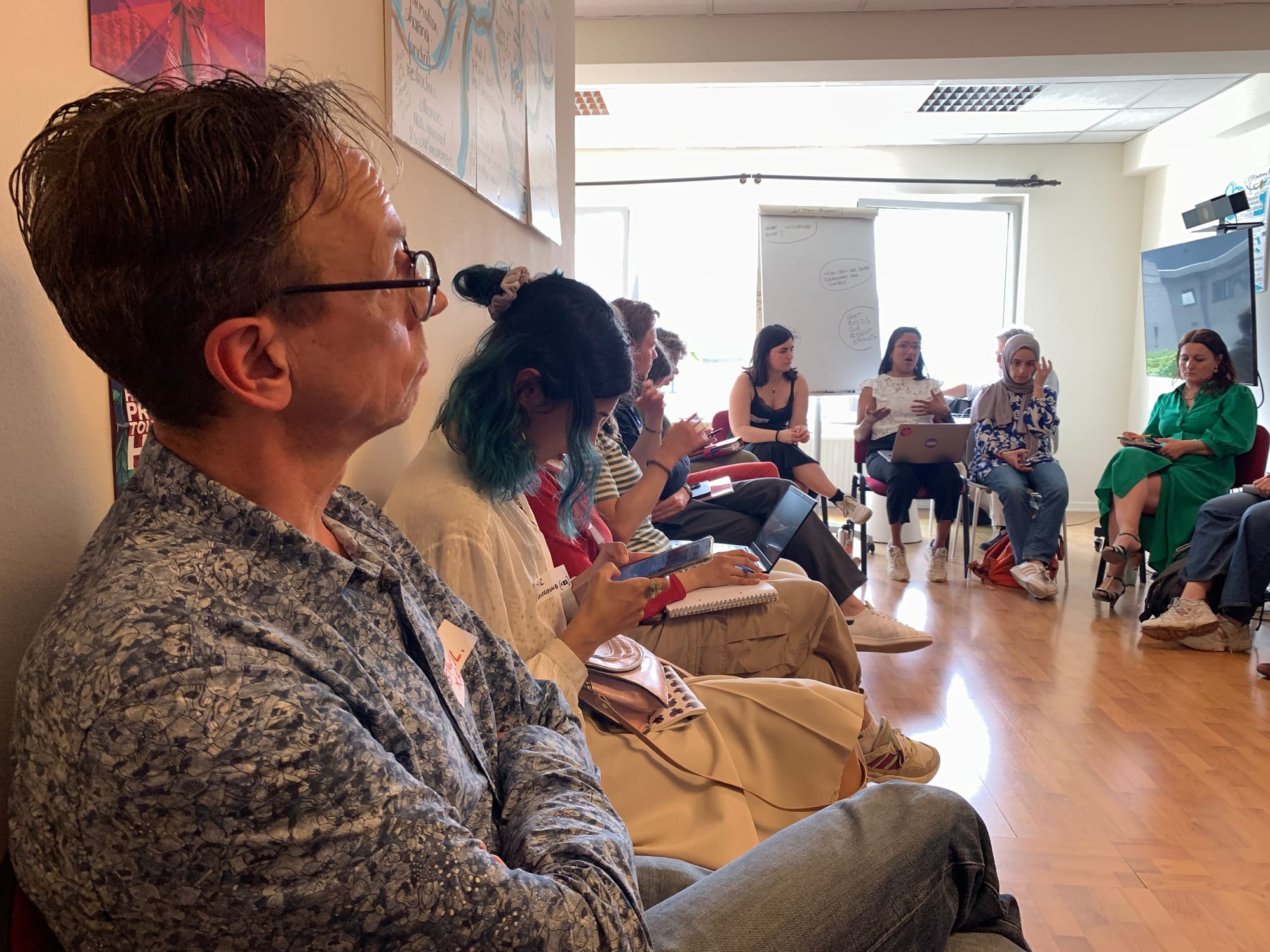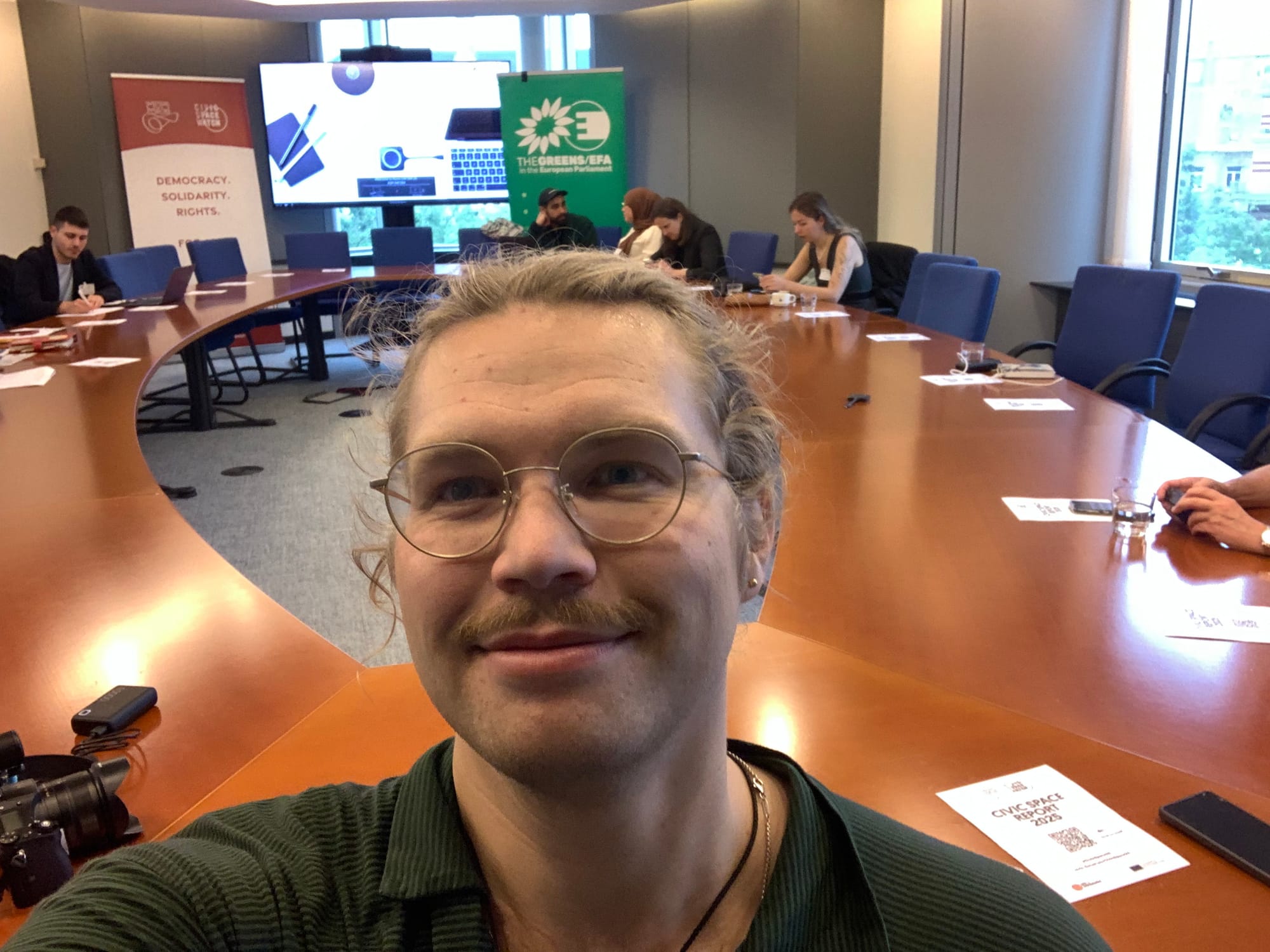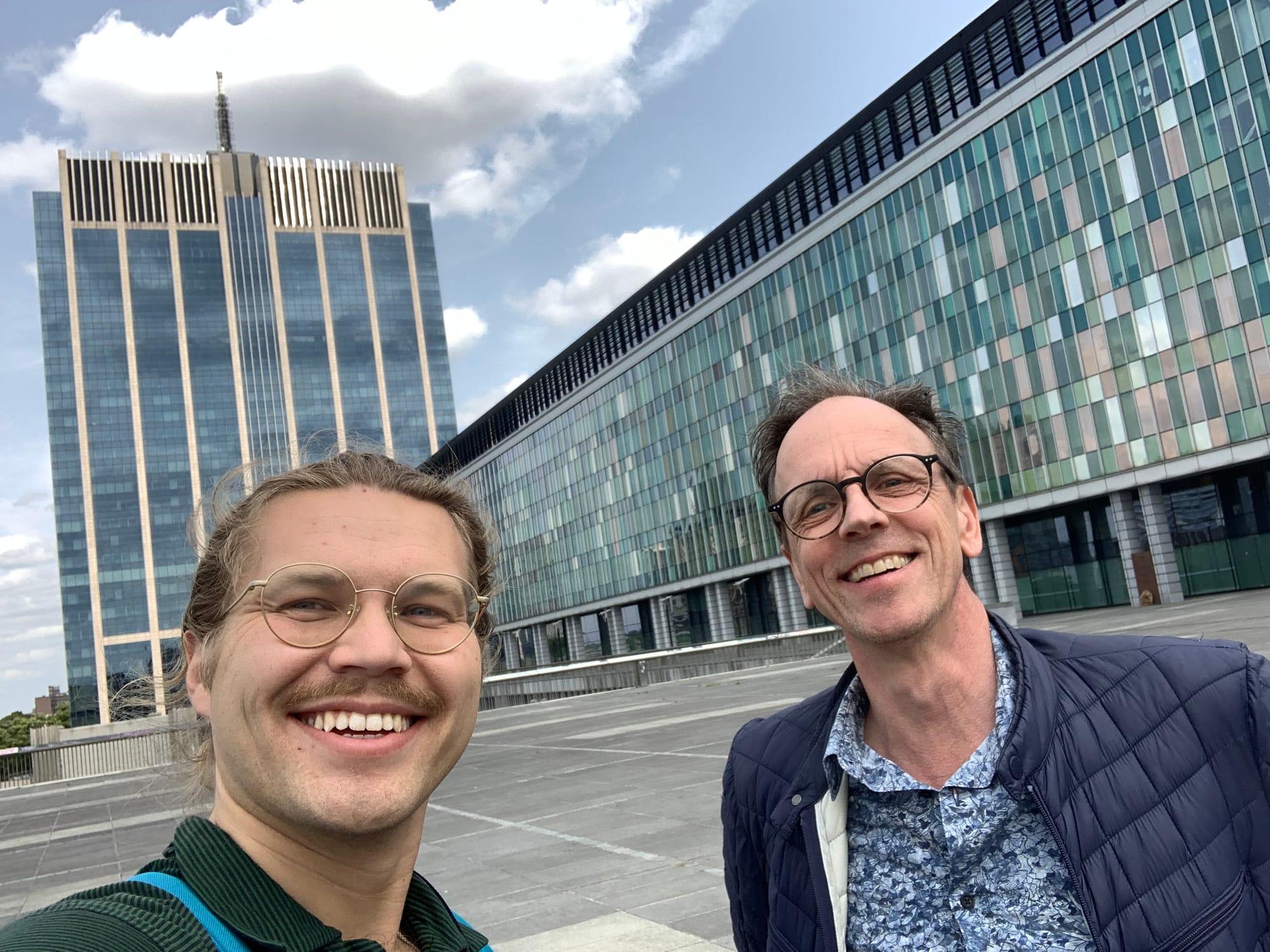🇪🇺 Inside Brussels: A Glimpse at Power, Protest, and Possibility
Went to Brussels, challenged NATO, met MEPs — and saw just how far Europe’s sliding into repression while the planet burns.

Last week, I travelled to Brussels with the European Civic Forum to launch their new report on the shrinking of civic space across Europe. I went with low expectations. Let’s be honest — the European Parliament is a machine bogged down in bureaucracy, still captive to corporate interests, still allergic to real participatory democracy. Personally, as a Brit living in Europe, I lament that we left the EU — but I’m under no illusions about its crippling faults. If there’s to be any meaningful future for Europe, it won’t come from parliamentary speeches and minor reforms. It will need an internal revolution — one that shifts power from lobbying halls to citizens’ assemblies, from political elites to organised communities, from economic growth to ecological survival. Until then, the institutions will keep tinkering while the planet burns.
But I also went because I needed some fresh air. A change of scene. A few days away from the home office, intense convention organisation, and the grey exhaustion of arrests, courts and perpetual crisis. I wanted to meet new people. Build new networks. Find the others.
And I did.

It began in surreal fashion. As we left the Civic Forum strategy event and walked towards the hotel, one of my Dutch colleagues spotted a familiar face. He stepped forward and began chatting in Dutch, like he’d run into an old friend. But it wasn’t. It was the Secretary General of NATO — and former Dutch PM of 14 years — Mark Rutte.
In a split second, we found a few light words of surprise before challenging him directly on NATO’s role in fuelling climate collapse. We told him plainly that we’d be disrupting outside the NATO gathering on the A12 in The Hague on June 25. He brushed us off with a smirk, muttering something about disrupting his car and that we should be focused on Putin.
I could hardly take in that we’d just confronted the head of one of the world’s biggest war and carbon machines. Still, it reminded me how thin the veil can be. These people are real. Their choices have consequences. And they can be confronted. Increasingly, groups like Climate Defiance, Fossil Free London, Citizens Arrest Network and Youth Demand are doing just that — calling out the powerful in the streets and at elite gatherings. I respect them for it, especially when combined with the mass mobilisation and community organising needed to disrupt the systems behind those faces.
Later, we met with several Members of the European Parliament — Benedetta Scuderi from the Greens, and Renew Europe’s Veronika Cifrová and Raquel García, who kindly hosted us. Alongside about fifteen other civic organisers — from Palestine solidarity groups in Germany to Muslim youth advocates from France, and Ultima Generazione reps from Italy — we brought our stories to the table. We spoke about police surveillance, criminalisation of protest, foreign agent smear laws, and the creeping normalisation of fascism across Europe. In preparing for the meeting, I’d reached out on social media to ask what examples I should take to Parliament. The responses poured in: right-wing think tanks funded by fossil fuels and corporate lobbies writing anti-protest legislation; Last Generation activists treated like the mafia in Bavaria; terrorist charges levelled at climate and Palestine groups; police overreach through home visits and intimidation; and corporations using injunctions and civil courts to crush protest far from their pipelines and HQs.

The Civic Forum report laid it all out with brutal clarity: across France, Germany, the Netherlands and beyond, civic space is being actively shrunk. Governments are not only failing to protect the right to protest — they’re actively undermining it. In many cases, they’re leading the charge. New laws. Surveillance threats. Legal intimidation. Defunding critical voices. Securitising migration and equating dissent with terrorism. And while civil society scrapes by with a historic €1.6 billion in EU support, it’s still peanuts compared to the €400 billion in subsidies handed to the fossil fuel industries — €42 billion of that just for petrol company cars. The contradictions could not be clearer.
What stayed with me from the roundtable was how much work we still have to do to build a shared political imagination. I believe real change comes when inside power and outside pressure work in tandem — when activists in the streets and reformers in the institutions pull in the same direction. That kind of ecosystem is essential to push back against fascism and climate collapse. But in the roundtable, that vision felt out of reach. We traded small stories, practical ideas, incremental reforms — all worthwhile, but the urgency of collapse and the need for a popular movement felt strangely distant. Even in Brussels, with so much at stake, the gravitational pull of the status quo was strong. Still, it was a start. A foot in the door. And if we’re serious about transformation, we have to keep prising it open.

In that moment I felt something I hadn’t expected: cautious hope. Not in the institutions themselves — but in the people we brought together. The frontline organisers, the bridge-builders, the quiet strategists and fired-up radicals, all pushing from different directions but with one shared aim: to beat back the twin threats of climate collapse and fascism, and to build a Europe rooted in justice, care and courage. I don’t believe change will come from the top. But I do believe it can come through the cracks. That’s why I was there. That’s why I’ll keep showing up.
We need a revolution in how we do politics — not just more progressive candidates, but a whole new system. One that listens, one that decides together, one that gives real power to ordinary people through citizens' assemblies and permanent civic participation. The EU, if it has any hope of surviving the next decades with integrity, needs to ditch the yoke of corporate capture and side with the people who are fighting for life on Earth.
You can read the Civic Forum’s full report at civic-forum.eu. And if you're reading this and thinking, "This is my fight too" — then find us. We’re building a broad, rebellious movement for democratic revolution. No illusions. No waiting. Just the long road ahead — together.
You can watch the full video report and speeches here
That’s a wrap for the Rev21 Convention! 500 people attended across 18 sessions with 50 speakers and many more organisers behind the scenes. Thank you so much to everyone who came and supported us. We raised £6000 and got dozens of new regular donors for the revolution. This is the work!

After all this action, I’ve been laid low with a week of migraines. I'm still learning how to balance chronic illness and activism. In the quieter moments, I’ve been reading, writing poetry, scribbling book and film reviews, and tending the garden when I can. Here's a few ways to keep in touch with my softer side:
📚 If you’d like to connect over books, I’m now on StoryGraph (for the indie-minded) and Goodreads (yes, I know — Amazon).
📽️ For film thoughts, lists, and the occasional rant, I’m on Letterboxd.
And for all of that plus the more personal side of things — poetry, illness, slow reflections — I’ve just launched a new Substack: Round Robin. It’s a space for writing without performance. A softer, slower corner of the internet, far from follower counts and punchy headlines. More raw and expressive, helping me to find a voice and community during heavy emotional weather. Come by if that sounds like your kind of thing.
With warmth and slowness,
Robin
If you liked this post, please share it and subscribe for more.